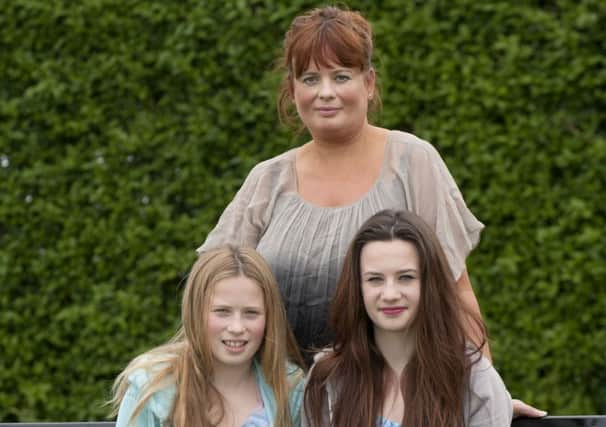Widow of drink drive victim hails law change


Jill Fulton, from Bonnington, suffered from post traumatic stress disorder after her husband Gavin was killed on Dundas Street on his way home from a Christmas party in December 2012.
The 43-year-old – who is today marking two years to the day since Gavin’s death – praised the tough new rules and insisted they would reduce drink driving incidents in the run up to Christmas.
Advertisement
Hide AdAdvertisement
Hide AdBrought in at midnight on Thursday, the change in law means motorists across Scotland must now have no more than 50mg of alcohol per 100ml of blood – thirty milligrams less than England.
This means drivers could be over the legal limit after just one pint of beer or a glass of wine. And on Friday, police revealed four drivers had been caught under the new law in the first few hours of it coming into effect, and said: “Our message is don’t risk it, don’t drink and drive.”
Jill, whose two young daughters have been left “traumatised” by their father’s death, insisted the rules would lead to a clearer understanding of the law. She said: “It’s brilliant. I think it will make a difference. Personally, I would love to see the limit going down even lower, but I know it’s an impossibility.
“This takes the ambiguity out of it. You either drink or you drive – it’s one or the other. It’s much more clear now, and hopefully everybody will take notice.
“And it will make a difference in the run up to Christmas.”
Advertisement
Hide AdAdvertisement
Hide AdAfter battling with mental health issues following Gavin’s death, Jill eventually returned to her job as a staff theatre nurse in the Western General Hospital earlier this year.
She said: “We will never forget Gavin. Everybody will remember him. It’s a bit ironic that it’s almost two years to the day and the law is being changed. It’s another poignant moment.”
Justice Secretary Michael Matheson insisted the new laws meant Scotland was now “leading the way across the UK.” He said: “The new limit has backing from experts, road safety campaigners and the majority of the public north and south of the border.
“It’s about making our roads safer and sending a clear message even one alcoholic drink will affect the ability to drive.”